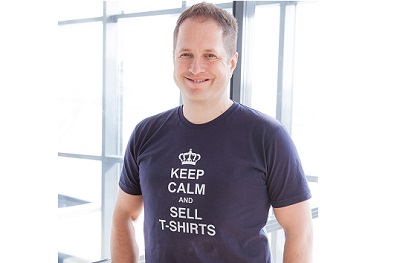Improving productivity is being touted as something we can do to counter the effects of Brexit. But how do CEOs have an effect on productivity? Philip Rooke, CEO, has some ideas: ingenuity, empowerment and investment.
The UK has a culture of working hard and putting the effort in. The problem is that we have a tendency to celebrate pulling a long shift, when really we should be focussing on making it a productive one.
At the end of 2017, the UK fell to the bottom of the G7 countries in terms of productivity. In the first quarter of 2018 things didn’t get much better. Figures from The Office for National Statistics show that output per hour worked fell by 0.5% in the first quarter of 2018; hours went up, but there was no corresponding rise in economic growth.
Alongside growth, improving the UK’s productivity is being touted as one of the ways of countering the impeding impact of Brexit. It’s something an organisation can control and work on while the national economic outlook is uncertain. Perhaps in our final months in the EU we could learn from our German cousins, who have a better work/life balance in hours and still achieve more. In Germany, effectiveness, rather than presenteeism is the key to success.
So how do we change a presenteeism culture to one of work hard and go home early?
How can an organisation improve its own productivity? Aside from micro-management tools like timesheets, we’ve found three things that work; empowerment, simplicity and excitement.
Firstly, we foster a culture of empowerment. Good ideas don’t just come from the senior team. Everyone in the business can have an idea that improves productivity, particularly when knowledge is shared effectively across the organisation. We use an Objectives and Key Results (OKR) framework to share, encourage and motivate. Our aim is to make important things visible to everyone, encourage every department and employee to come up with ideas to meet the targets. Perhaps the most important aspect of this approach is to decide what NOT to do in a quarter. Too many companies and teams try to do too much and end up achieving very little. If you concentrate on achieving fewer, but more effective changes, then change becomes more visible and impactful.
This is where a CEO can help the team be more productive, by clearing the way. We are no longer hands-on value creators. The role of the CEO is to keep our value-generators pointing the right direction and create an effective company culture. We should fight to make sure the right people, with the right skills and resources, are empowered, so they can make a difference to productivity.
If that sounds like a lot of bureaucracy, we deliberately created a secondary countermeasure, simplicity. All businesses are complex, but you should work towards making them simple. We work hard to keep the OKR process as simple as possible. OKR is a communication tool not a complex process.
Thirdly, excitement. What we do is interesting and exciting. The role of the CEO and C-Level Executives is to make it that way. To make it clear to the team the interesting challenges the company has and generate excitement about over-coming them. These might be; beating competitors, overcoming technical and marketing obstacles or hitting major milestones.
Excitement also comes out of being part of a team and culture you want to be in. Teams work harder when they like and respect the people around them. When they wake up in the morning they look forward to seeing their colleagues and during the day they don’t want to let their colleagues down.
To promote this side of our culture we introduced the role of Feel Good Manager. The job is to keep the team enthused and encourage informal events like the C-level lunch where staff and the Exec can discuss ideas. She also organises many other events or services that are designed to build relationships between the teams and also make colleagues happy to come to work.
In summary, most people have to go to work, but what they do when they get there and how hard they work is in your hands. Hours and being seen is not it; busy people can achieve nothing and a person at the computer could be doing social media all day. As an Exec, we also have to remember to look at results, not hours
The difference is simple: does someone know what they are achieving, why they, their tasks and results matter? Either in the big picture or more local areas. Can they effect change, are they empowered, and do they have the tools? And are they part of team and culture that they miss when they are not there?
Even dedicated and fully motivated CEOs occasionally wake up on cold winter Monday mornings, with a little hangover from the weekend and think, ‘do I really want to get out of bed?’. But I can at least say that it is not duty or pay that gets me out of bed. It is wanting to get back in with my teams, see them achieve the next thing and, from the cleaning lady to the top executives, know that they (mostly) feel the same way.
By Philip Rooke
CEO

